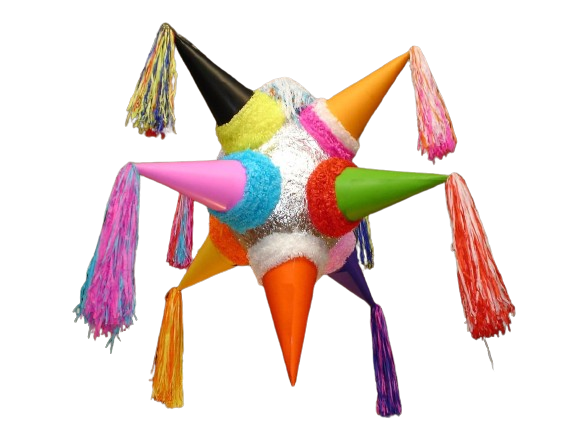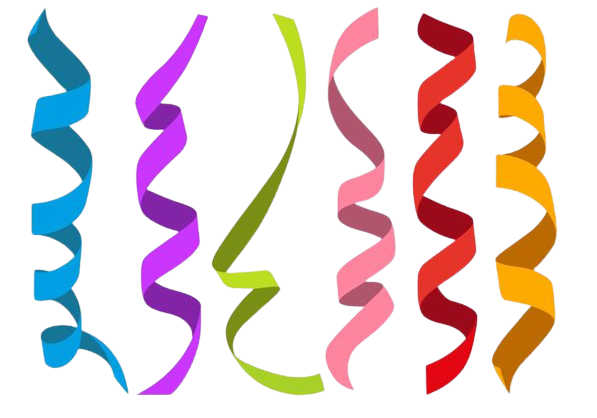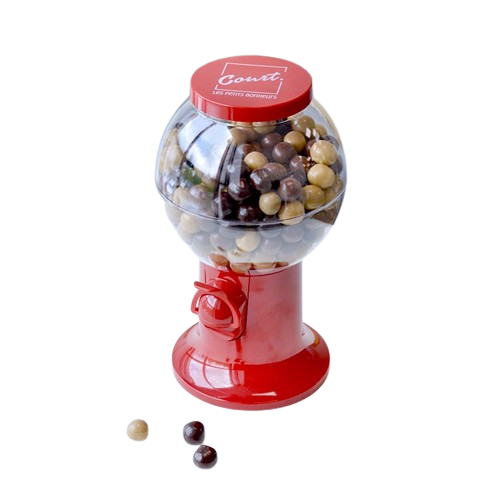
Celebrations are opportunities to create memories and add a touch of magic to everyday life. To help you plan a truly remarkable event, here are 25 unique and lesser-known words related to celebrations, complete with explanations and usage examples.
Table of Contents
25 New Words About Celebrations
1. Fairy Lights
– Pronunciation: /ˈfer.i laɪts/
– Part of Speech: Noun (plural)
– Meaning: Small, twinkling lights, often used for decoration during celebrations.
– Common Prepositions: “with,” “of”

– Usage:
1. The garden was illuminated with fairy lights for the evening party.
2. She draped fairy lights around the tent to create a magical atmosphere.
3. The birthday cake table was surrounded by a soft glow from fairy lights.
4. Fairy lights hung from the trees, giving the party a whimsical feel.
2. Confetti
– Pronunciation: /kənˈfɛt.i/
– Part of Speech: Noun (uncountable)

– Meaning: Small pieces of colored paper traditionally thrown at celebrations, especially weddings and parties.
– Common Prepositions: “of,” “with”
– Usage:
1. As the clock struck midnight, the room was filled with a shower of confetti.
2. The confetti matched the color scheme of the party.
3. They surprised her with an explosion of confetti as she walked in.
4. Confetti rained down from the ceiling, adding to the festive atmosphere.
3. Piñata
– Pronunciation: /pɪnˈjɑːtə/
– Part of Speech: Noun (countable)
– Meaning: A decorated figure, often filled with candy and small toys, that is broken open by blindfolded participants during celebrations.

– Common Prepositions: “with,” “of”
– Usage:
1. The children took turns trying to break the piñata.
2. The piñata was shaped like a unicorn and filled with treats.
3. They hung the piñata from a tree in the backyard.
4. Everyone cheered as the piñata finally burst open.
4. Streamers
– Pronunciation: /ˈstriː.mərz/
– Part of Speech: Noun (plural)
– Meaning: Long, narrow pieces of colored paper or plastic used as decoration for parties.
– Common Prepositions: “with,” “of”

– Usage:
1. The room was adorned with streamers of every color.
2. They threw streamers into the air to celebrate the occasion.
3. Streamers hung from the ceiling, creating a festive look.
4. The entrance was decorated with streamers and balloons.
5. Fête
– Pronunciation: /fɛt/
– Part of Speech: Noun (countable)
– Meaning: A large outdoor party, celebration, or festival, often held for a specific reason.
– Common Prepositions: “for,” “at”
– Usage:
1. They hosted a summer fête in the village square.
2. The annual fête attracted visitors from all over the region.
3. She attended a fête for the local charity.
4. The fête was the highlight of the community’s summer events.
6. Bonbonnière
– Pronunciation: /bɒnˈbɒn.jɛər/
– Part of Speech: Noun (countable)

– Meaning: A small decorative box or container used to hold candies or bonbons, often given as a gift at celebrations.
– Common Prepositions: “with,” “of”
– Usage:
1. Each guest received a bonbonnière filled with chocolates.
2. The bonbonnière was intricately designed and matched the party theme.
3. They placed a bonbonnière at each table setting as a party favor.
4. She admired the delicate craftsmanship of the bonbonnière.
7. Tinsel
– Pronunciation: /ˈtɪn.səl/
– Part of Speech: Noun (uncountable)

– Meaning: Thin strips of shiny metal foil used as a decoration, especially during festive seasons.
– Common Prepositions: “with,” “of”
– Usage:
1. The tree was covered in tinsel and lights.
2. She added tinsel to the decorations to make them sparkle.
3. Tinsel hung from the walls, giving the room a festive glow.
4. The cake was surrounded by a border of silver tinsel.
8. Décor
– Pronunciation: /deɪˈkɔːr/
– Part of Speech: Noun (uncountable)
– Meaning: The style and arrangement of elements within a space, especially for a celebration or event.
– Common Prepositions: “with,” “of”
– Usage:
1. The décor of the party was elegant and sophisticated.
2. They chose a theme and designed the décor accordingly.
3. The décor included fresh flowers and candles on each table.
4. She was in charge of the décor for the birthday celebration.
9. Candelabra
– Pronunciation: /ˌkændlˈɑːbrə/
– Part of Speech: Noun (countable)

– Meaning: A large branched candlestick that holds several candles, often used as a decorative piece during celebrations.
– Common Prepositions: “with,” “of”
– Usage:
1. The dining table was illuminated by a beautiful candelabra.
2. The candelabra added a touch of elegance to the party décor.
3. They lit the candles in the candelabra before the guests arrived.
4. The candelabra was adorned with flowers and ribbons.
10. Carouse
– Pronunciation: /kəˈraʊz/
– Part of Speech: Verb
– Forms: 2nd – Caroused, 3rd – Caroused, Present Participle – Carousing
– Meaning: To engage in lively and noisy festivities, especially while drinking alcohol.
– Common Prepositions: “with,” “at”
– Usage:
1. They caroused late into the night after the celebration.
2. The guests caroused at the party, enjoying music and dancing.
3. He was known for his tendency to carouse with friends at every opportunity.
4. The holiday season was filled with carousing and laughter.
11. Masquerade
– Pronunciation: /ˌmæskəˈreɪd/
– Part of Speech: Noun (countable)
– Meaning: A party or event where guests wear masks and often elaborate costumes.
– Common Prepositions: “at,” “with”
– Usage:
1. They attended a masquerade in Venice, wearing ornate masks.
2. The masquerade was the highlight of the festival.
3. She spent weeks preparing her costume for the masquerade.
4. The masquerade ball was filled with mystery and intrigue.
12. Prosecco

– Pronunciation: /prəˈsɛkoʊ/
– Part of Speech: Noun (uncountable)
– Meaning: A sparkling white wine from Italy, often served at celebrations.
– Common Prepositions: “with,” “of”
– Usage:
1. They toasted with glasses of prosecco at the birthday party.
2. Prosecco was served alongside the birthday cake.
3. She poured a glass of prosecco to celebrate the occasion.
4. The bar was stocked with bottles of prosecco for the guests.
13. Confidant
– Pronunciation: /ˈkɒn.fɪ.dænt/
– Part of Speech: Noun (countable)
– Meaning: A person with whom one shares a secret or private matter, trusting them not to repeat it to others; often a close friend or companion at a celebration.
– Common Prepositions: “of,” “with”
– Usage:
1. She shared her plans for the surprise party with her confidant.
2. He trusted his confidant with all the details of the event.
3. Her confidant helped her organize the birthday celebration.
4. They enjoyed the party in the company of their closest confidants.
14. Soirée
– Pronunciation: /swɑːˈreɪ/
– Part of Speech: Noun (countable)
– Meaning: An evening party or gathering, often with a specific theme or purpose.
– Common Prepositions: “at,” “with”
– Usage:
1. They hosted a soirée at their home to celebrate her birthday.
2. The soirée was filled with music, dancing, and fine dining.
3. She received an invitation to a soirée in the city.
4. The soirée was an elegant affair, with guests dressed in formal attire.
15. Hors d’oeuvre
– Pronunciation: /ɔːr ˈdɜːrv/
– Part of Speech: Noun (countable)

– Meaning: A small savory dish served as an appetizer, typically before the main course at celebrations.
– Common Prepositions: “with,” “of”
– Usage:
1. The guests were offered a variety of hors d’oeuvres as they arrived.
2. She prepared hors d’oeuvres of smoked salmon and cream cheese.
3. The hors d’oeuvres were served on silver trays by waiters.
4. They enjoyed a selection of hors d’oeuvres before dinner was served.
16. Resplendent
– Pronunciation: /rɪˈsplɛndənt/
– Part of Speech: Adjective
– Meaning: Shining brilliantly; characterized by a glowing splendor, often used to describe something visually striking at a celebration.
– Common Prepositions: “in,” “with”
– Usage:
1. The ballroom was resplendent with chandeliers and golden decorations.
2. She appeared resplendent in a gown covered in sequins.
3. The evening sky was resplendent with fireworks after the party.
4. The guests were resplendent in their finest attire.
17. Galore
– Pronunciation: /ɡəˈlɔːr/
– Part of Speech: Adjective
– Meaning: In abundance; in plentiful amounts, often used to describe the availability of food, drink, or decorations at a celebration.
– Common Prepositions: “with,” “of”
– Usage:
1. The party was galore with food and drink for everyone.
2. There were flowers galore decorating the venue.
3. The event featured music and entertainment galore.
4. They had desserts galore to satisfy every guest.
18. Boutonnière
– Pronunciation: /ˌbuːtənˈjɛr/
– Part of Speech: Noun (countable)
– Meaning: A floral decoration, typically a single flower or small bunch, worn by men in the buttonhole of a lapel during formal events.

– Common Prepositions: “with,” “in”
– Usage:
1. The groom wore a white rose boutonnière on his suit jacket.
2. Each of the men at the party had a boutonnière in their lapel.
3. The boutonnière matched the color scheme of the event.
4. He pinned the boutonnière to his jacket just before the party began.
19. Pomander
– Pronunciation: /ˈpɒmændər/
– Part of Speech: Noun (countable)
– Meaning: A ball or container filled with aromatic substances, often used as a decorative item at celebrations.

– Common Prepositions: “of,” “with”
– Usage:
1. The tables were decorated with pomanders made of oranges and cloves.
2. She carried a pomander filled with dried flowers and herbs.
3. The room was scented with pomanders hung from the ceiling.
4. They gifted each guest a pomander as a keepsake from the event.
20. Posy

– Pronunciation: /ˈpoʊ.zi/
– Part of Speech: Noun (countable)
– Meaning: A small bouquet of flowers, often given as a gift or used as decoration at a celebration.
– Common Prepositions: “of,” “with”
– Usage:
1. She was handed a posy of fresh flowers as she entered the party.
2. The bride carried a posy instead of a full bouquet.
3. Each table had a posy of roses as the centerpiece.
4. The guests received posies as a token of appreciation for attending.
21. Couture

– Pronunciation: /kuːˈtjʊr/
– Part of Speech: Noun (uncountable)
– Meaning: The design and creation of fashionable, custom-made clothing, often worn at high-end celebrations.
– Common Prepositions: “of,” “in”
– Usage:
1. She wore a couture gown made by a famous designer.
2. The event was filled with attendees dressed in couture.
3. Couture fashion is often seen at exclusive parties and events.
4. He admired the intricacy of the couture dress worn by the guest of honor.
22. Canapé
– Pronunciation: /ˈkænəˌpeɪ/
– Part of Speech: Noun (countable)
– Meaning: A small piece of bread or pastry topped with savory food, served as an appetizer at celebrations.
– Common Prepositions: “with,” “of”

– Usage:
1. The guests were served canapés with various toppings.
2. She prepared a platter of canapés for the cocktail hour.
3. The canapé selection included smoked salmon and cream cheese.
4. They passed around trays of canapés before the main course.
23. Embellish
– Pronunciation: /ɪmˈbɛlɪʃ/
– Part of Speech: Verb
– Forms: 2nd – Embellished, 3rd – Embellished, Present Participle – Embellishing
– Meaning: To make something more attractive by adding decorative details, often used in the context of decorations or attire at celebrations.
– Common Prepositions: “with,” “by”
– Usage:
1. She embellished the cake with edible flowers.
2. The dress was embellished with sequins and beads.
3. They embellished the room with garlands and ribbons.
4. He embellished his story with details of the lavish party.
24. Panache
– Pronunciation: /pəˈnæʃ/
– Part of Speech: Noun (uncountable)
– Meaning: Distinctive and stylish elegance or flair, often displayed in one’s appearance or behavior at a celebration.
– Common Prepositions: “with,” “of”
– Usage:
1. She entered the party with panache, turning heads as she walked.
2. The event was organized with great panache, impressing all the guests.
3. He delivered his speech with panache, capturing everyone’s attention.
4. The host decorated the venue with a touch of panache.
25. Festoon
– Pronunciation: /fɛˈstun/
– Part of Speech: Verb/Noun
– Forms (Verb): 2nd – Festooned, 3rd – Festooned, Present Participle – Festooning
– Meaning: (Verb) To decorate a place with ribbons, garlands, or other decorations. (Noun) A chain or garland of flowers, leaves, or ribbons, hung in a curve as a decoration.
– Common Prepositions: “with,” “of”

– Usage:
1. The room was festooned with colorful streamers and balloons. (Verb)
2. They festooned the entrance with lights for the evening party. (Verb)
3. The festoons of flowers hung gracefully across the venue. (Noun)
4. He festooned the banister with evergreen garlands for the celebration. (Verb)
These unique words will add flair to your vocabulary and help you plan a memorable celebration with style and sophistication.
Title: “A Soirée of Splendor: The Enchanted Celebration”
The annual soiree was the year’s most anticipated event in the heart of a small, picturesque town. This time, the celebration promised to be more magical than ever before. The entire town was excited as the day of the fete approached, with preparations well underway.
The host, Lady Seraphina, was known for her impeccable taste and sense of panache. She had transformed her grand estate into an enchanted wonderland. The entrance was festooned with lush greenery and twinkling fairy lights that seemed to float in the air like tiny stars. Guests entered through an archway adorned with tinsel and festoons of fresh flowers, which filled the air with a sweet fragrance.
As the evening began, guests arrived dressed in their finest couture. The men wore sharp tuxedos, each with a carefully placed boutonniere on their lapels, while the women glided in resplendent gowns, some embellished with sequins and others with delicate lace. Lady Seraphina herself appeared in a gown that was resplendent in every way, shimmering with every step she took.
Inside the ballroom, a grand candelabra stood as the centerpiece, casting a warm, golden glow over the **décor**. The tables were decorated with small bonbonnières filled with chocolate truffles, a sweet treat for each guest. The room was filled with the soft sounds of a string quartet, and the atmosphere was alive with the chatter of guests catching up and making new acquaintances.
The evening’s highlight was the masquerade, where each guest donned an elaborate mask. There was an air of mystery and excitement as they mingled, trying to guess each other’s identities. Lady Seraphina had planned every detail meticulously, even arranging for pomanders of cloves and oranges to be placed around the room, adding a hint of spice to the air.
As the night progressed, waiters circulated with trays of canapés and hors d’oeuvres, ensuring no guest went hungry. The selection was exquisite, with flavors that delighted the palate. Champagne and prosecco flowed freely, filling the glasses of those who were there to carouse and celebrate with abandon.
In one corner of the room, a group of close friends gathered, sharing secrets and laughter. Lady Seraphina joined them, her closest confidant by her side. They toasted to the night, to friendship, and to the memories they were creating.
The night was filled with surprises. As the clock struck midnight, a piñata shaped like a grand castle was brought out. Blindfolded guests took turns trying to break it open, until it finally burst, showering everyone with candies and confetti. The room erupted in cheers and laughter as everyone scrambled to collect the treats.
Before the evening came to a close, Lady Seraphina led her guests outside, where a stunning display of fireworks lit up the night sky. The colors danced across the heavens, creating a breathtaking spectacle. Underneath the dazzling display, the guests marveled at the evening’s splendor, the event made even more magical by the soiree’s ambiance.
As the guests departed, each was handed a small posy of flowers as a token of the evening. The soirée had been a night of elegance, mystery, and joy—one that the guests would remember for years to come. Lady Seraphina, with her panache and attention to detail, had once again created a celebration that was nothing short of enchanting.
Other Posts, you might be interested in…

I think this is among the most significant info for me. And i am glad reading your article. But wanna remark on some general things, The web site style is ideal, the articles is really nice : D. Good job, cheers
Thanks! 🙂